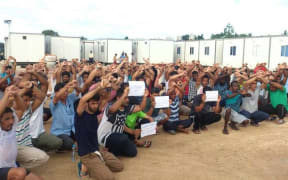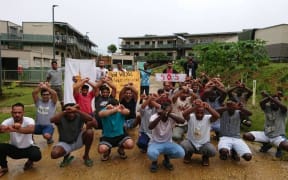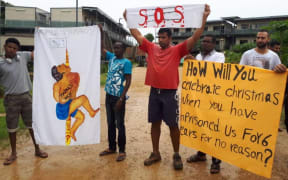Papua New Guinea leaders say Australia's offshore processing of refugees on Manus Island has been increasingly problematic for their country.
Not only have Australia's offshore processing activities on the island violated PNG's constitution and created a humanitarian crisis, but Manus is seen as the reason why Australia lost leverage to help PNG in its fight against corruption.
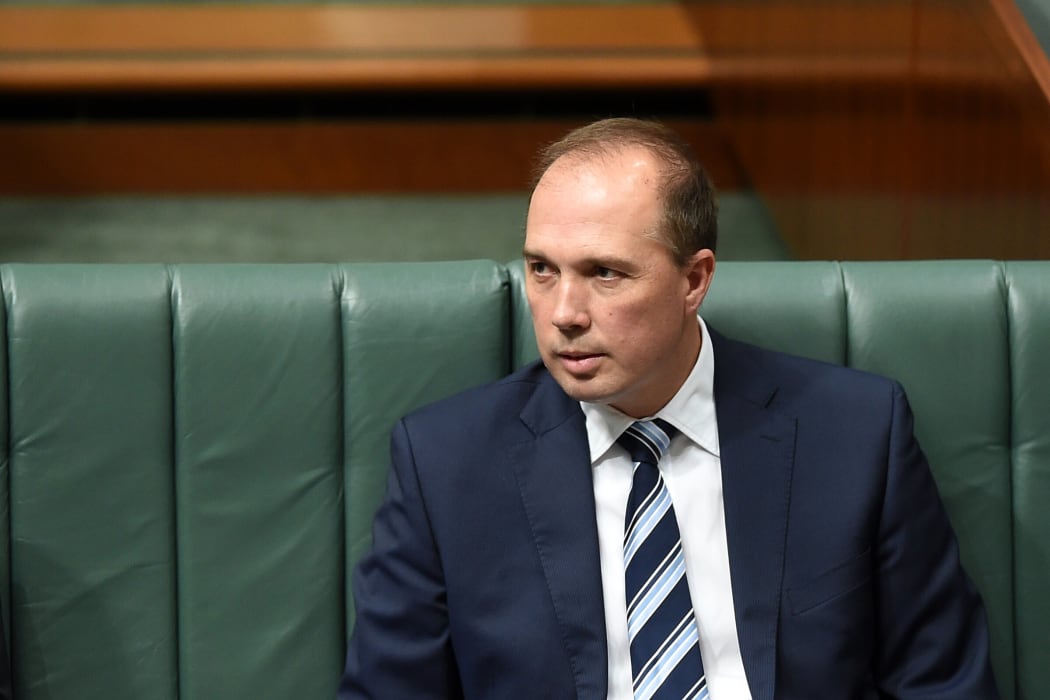
In 2018 Australia's Home Affairs Minister Peter Dutton refused a senate request for information on Paladin, saying it could harm Australia's relations with PNG. Photo: AAP
The Australian government's decision to award Paladin Solutions about a billion kina ($US300 million) worth of contracts on Manus has been subject to intense scrutiny before Australia's senate this week.
Reports by the Australian Finance Review on the lucrative Australian government contracts have raised a number of glaring red flags relating to potential fraud.
PNG's Prime Minister Peter O'Neill said he would welcome any investigation by Australian authorities into why an inexperienced and unknown company was issued the contracts.
Insisting his government had no say in the Paladin contract, Mr O'Neill said "any transparent procurement process will not allow this to take place".
But PNG's former prime minister Sir Mekere Morauta claimed that awarding the contracts to Paladin was one of a series of signs in PNG's election year 2017 that Canberra was unduly influencing PNG's electoral processes through its support of the O'Neill government.
Good governance had long been a nominal priority of Australia's aid programme to PNG, yet Canberra's reliance on Manus for offshore processing has appeared to inhibit it from pressing its neighbour on critical matters regarding corruption and the rule of law, not to mention human right abuses, in the past several years.
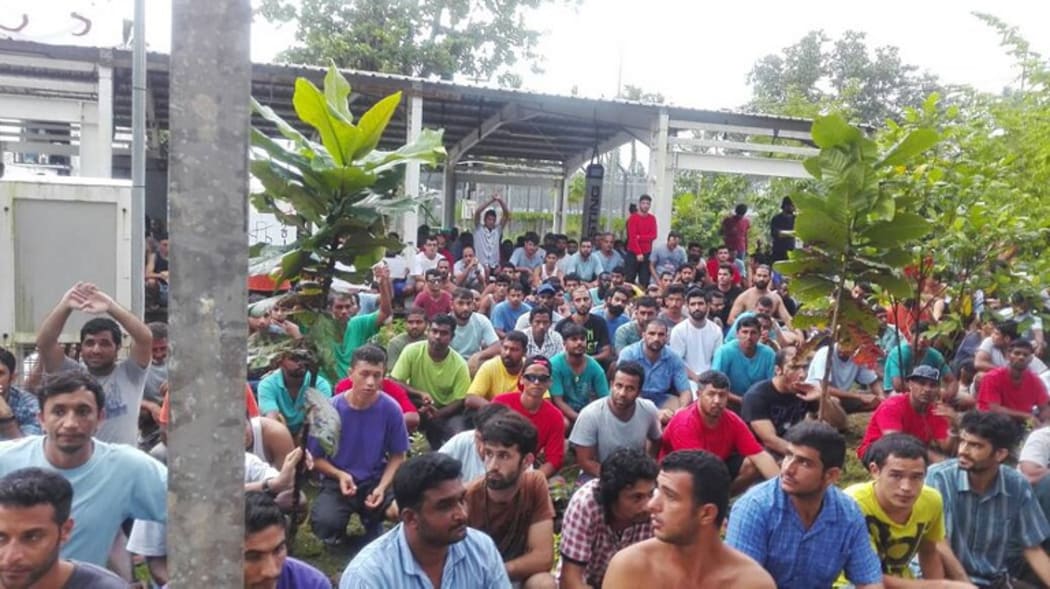
A handout photo from Refugee Action Coalition taken and received on 13 November 13 shows refugees at the Australian detention centre on Manus Island. Photo: AFP / REFUGEE ACTION COALITION
In 2013, Mr O'Neill's government agreed to have the Manus centre re-opened for processing of boat people who had tried to reach Australia.
After almost six years, around six hundred refugees and asylum seekers remain languishing on the island, including those suffering acute medical problems.
It is nearly three years since PNG's Supreme Court ruled that holding men on Manus against their will was unlawful.
The old detention centre was closed over a year later, and the refugees moved to accommodation compounds in Manus' Lorengau town.
PNG's government claims refugees are no longer detained. But many of the refugees say they have no freedom, and are essentially stuck there, under guard.
Uncertainty about the future had caused a breakdown in the refugees' mental health, and depression and hopelessness had led to self-harm and suicide attempts becoming a daily occurrence, according to the Catholic Church which is pressuring PNG's government to negotiate a deadline with Australia for the removal of refugees from Manus.
The president of PNG's Catholic Professionals Society Paul Harricknen said it was time for both governments to stop pretending the men were not detained.
"Close to most of them do not want to stay in PNG, because in the first place PNG was not their destination.
"And for them to be brought here and detained and continue to be detained, whether you keep them on Manus, whether the detention centre is closed, whether you keep them in a hotel and give them money and expect them to run around, that's still detention."
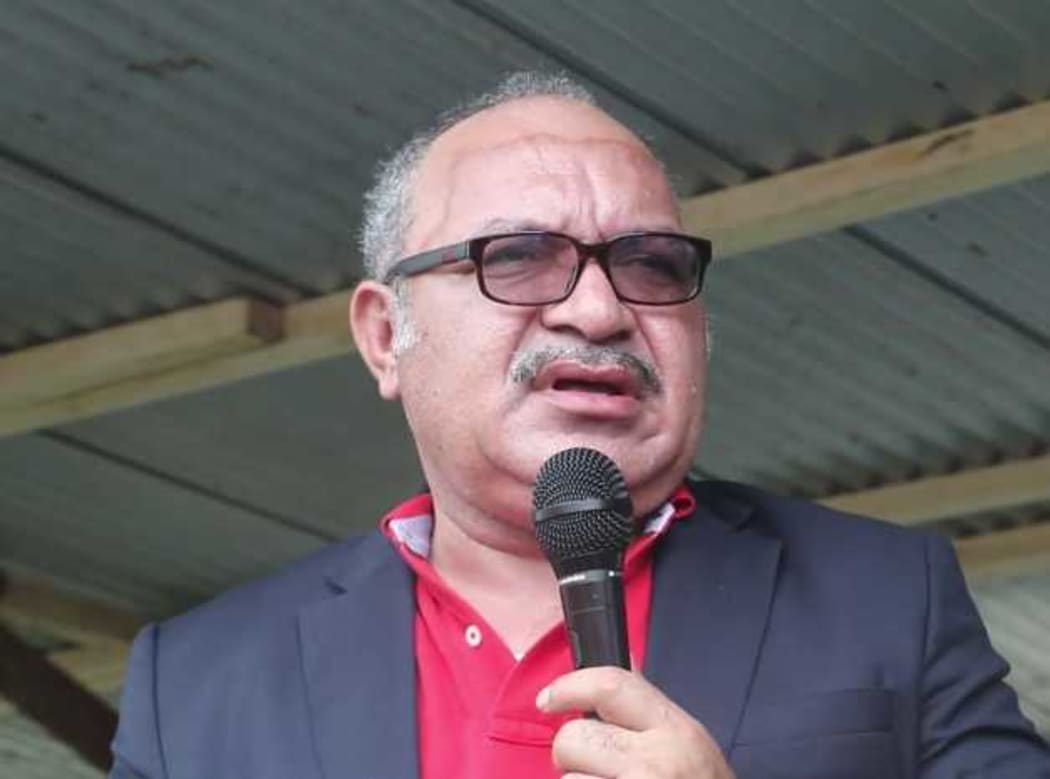
Papua New Guinea prime minister Peter O'Neill says his government had no say in the Paladin contract. Photo: Loop PNG
Last month, the general-secretary of the Catholic Bishops Conference of PNG's, Giorgio Licini, wrote to PNG's government calling for a dignified ending to Australia's indefinite detention of the men.
According to Mr Harricknen, the response they received from the Immigration Minister Petrus Thomas was that it was outside his government's power to do anything about it. Mr Thomas however indicated that it was time for Australia to solve what had become a humanitarian crisis.
"PNG's government is still waiting or Australia to make that call," said Mr Harricknen.
"I think that is not a good position because we are talking about our own laws and we are talking about people suffering on our land. Our government has to take responsibility."
PNG's opposition leader Patrick Pruaitch said PNG's government, which he was a part of at the time, had acted in good faith by helping to process refugees sent by Australia to Manus after perilous boat trips.
But he said Australia's government has shown scant regard for the local and national problems it's offshore processing policy has created in PNG.
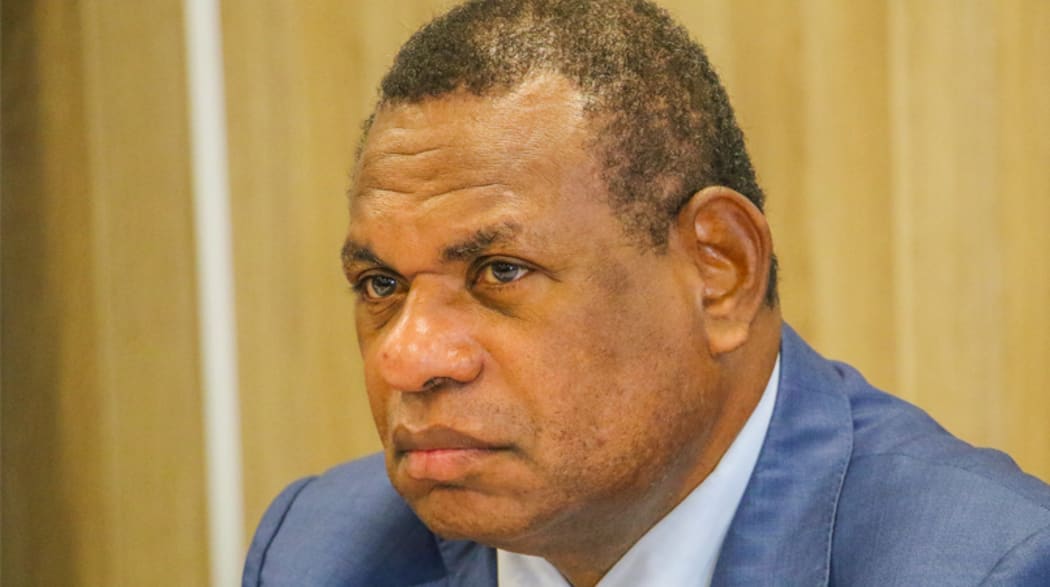
Patrick Pruaitch Photo: Loop PNG
Mr Pruaitch felt that by its actions Australia had also shown scant regard for the plight of the refugees, a stance that has been condemned by the United Nations.
"Australia may regard these comments as harsh, but this is the only way Papua New Guineans can interpret Australia's decision to reject out of hand a New Zealand offer to resettle many of the Manus refugees in New Zealand," he said.
In Mr Pruaitch's view, this was highlighted by the lucrative contracts granted to an allegedly unqualified company in 2017, even after PNG's supreme court decision.
Mr Pruaitch said it appeared that the Australian Government was willing to allow Paladin, which recently purchased a leading PNG security firm, to undertake covert operations in PNG.
"The only reason Australian authorities awarded this security contract to Paladin was because it understood Paladin would take over the PNG-based Black Swan security firm and through this, and other means, influence key political leaders within PNG's ruling party.
"Australia's role in this refugee crisis is deplorable from almost any angle one could take, beginning with use of its financial muscle and strong-arm tactics to encourage or force developing nations such as PNG and Nauru to accept the establishment of the detention centres."
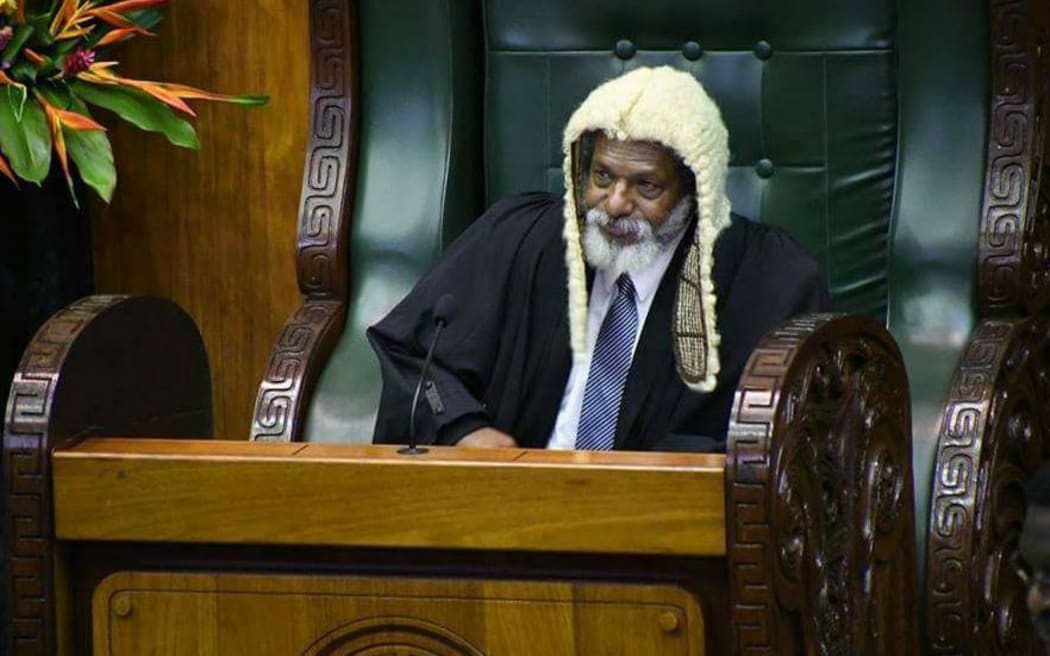
Job Pomat. Photo: Facebook / Office of the Speaker
This week the Manus MP and PNG Parliament Speaker Job Pomat spoke of the way Australia's offshore processing had transformed his home island into a "hellhole" in the eyes of foreigners.
For the refugees, Manus has turned into a prison island, although many of them have tried to integrate into the community and forge bonds with local people.
This has often been problematic both for refugees and locals, according to a former Manus MP, Ronnie Knight, who claimed that around sixty babies with refugee fathers had been born to local women, introducing new complexities for local families.
Mr Knight has also repeatedly warned about the failures of the health services for refugees on Manus, abuses by ex-pat security guards and the failed promises around economic benefits for local people from work related to the Manus centre.
But some Manus landowners have secured business out of the offshore processing arrangement, including Mr Pomat's brothers control Paladin's local subcontractor Peren Investments Limited.
However the Speaker said he hoped as many asylum-seekers and refugees as possible woud be sent from Manus to Australia after the recent successful passage of the Urgent Medical Treatment Bill in Australia's senate.
The bill, which the government was defeated on, ammended Australia's Migration Act, giving doctors the authority to transfer sick refugees from Manus Island and Nauru to Australia.
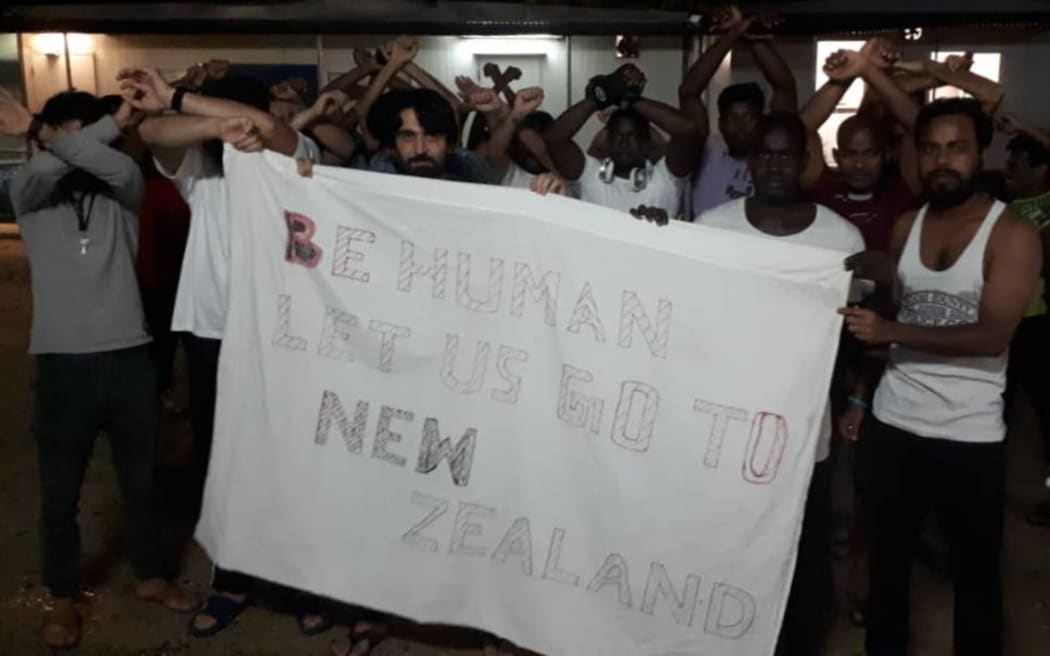
Manus refugees are calling for Australia to accept NZ's resettlement offer. Photo: Shaminda Kanapathi
Yet Australia's prime minister Scott Morrison immediately signalled his government's move to ensure sick refugees wouldn't make it to the mainland, by re-opening the detention centre on Australia's remote Christmas Island.
Meanwhile, this week there was another plea from the refugees to Australian lawmakers to force New Zealand's resettlement offer through parliament. The Liberal government, especially Home Affairs minister Peter Dutton, is expected to fight tooth and nail against this.
Now, with Australia's refugee resettlement swap deal with the US appearing to have stalled, it seems the hundreds of men stuck on Manus aren't going anywhere soon.
Until the refugee crisis is ended, PNG is likely to face more problems, at more cost to the country's relationship with Australia.
